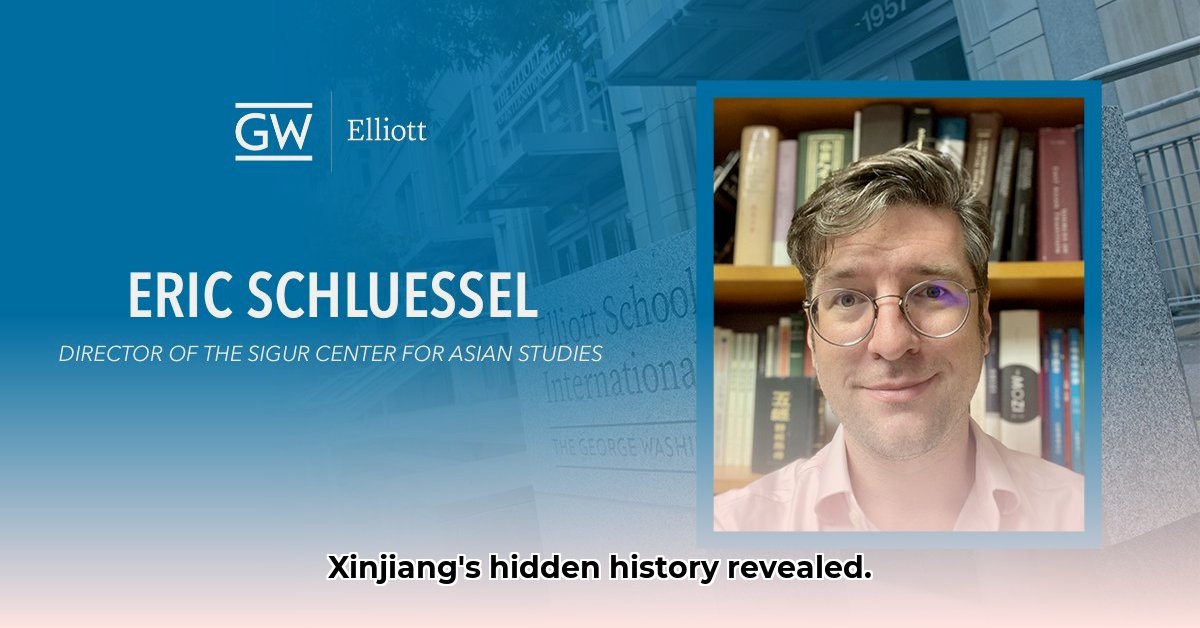
Rewriting Xinjiang's Past: Eric Schluessel and the Power of Chaghatay Turkic Sources
Eric Schluessel's scholarship is reshaping our understanding of Xinjiang's history. Instead of relying solely on dominant narratives, Schluessel delves into underutilized primary sources, primarily documents written in Chaghatay Turkic (a Turkic language with a rich history in Central Asia). This innovative approach offers a fresh, nuanced perspective on the complex interplay between Uyghur and Han communities in Xinjiang, particularly during the 19th and 20th centuries. His work challenges conventional interpretations, enriching our understanding of the region's social, economic, and political dynamics.
How did Schluessel achieve this paradigm shift? He meticulously unearthed and analyzed archival materials, many written in Chaghatay Turkic, a language previously largely ignored by mainstream scholarship. This linguistic focus provided access to a wealth of previously untapped information, offering a bottom-up perspective that complements – and often contradicts – existing top-down accounts dominated by official Chinese records. This is akin to discovering a hidden trove of personal diaries, offering intimate glimpses into the lives and experiences of ordinary people. These primary sources reveal the human stories often absent in broader historical narratives, providing a more granular understanding of daily life and community interactions.
Schluessel's research focuses on the 19th and 20th centuries, periods characterized by major political and social transformations. He examines the Qing Dynasty's efforts to integrate Xinjiang into the Chinese empire, exploring the impact of these policies on the daily lives of both Uyghur and Han communities. His analyses extend beyond high-level government policies, delving into the economic consequences of these imperial endeavors and their effects on village life and local economies. This granular approach provides valuable insights into the lived experiences of individuals navigating a period of significant change.
While Schluessel's work is undeniably groundbreaking, it's important to acknowledge its inherent limitations. The use of less-commonly studied languages like Chaghatay Turkic presents significant challenges, particularly concerning translation and interpretation. Nuances in meaning can be lost, and the inherent subjectivity in the translation process requires cautious consideration. Moreover, the nature of historical sources, even those in Chaghatay Turkic, means that important details may be missing or incomplete. Precise population figures and comprehensive economic statistics may be scarce, making it difficult to definitively quantify the scale of certain events. However, these acknowledgements only enhance the credibility of his conclusions; they are framed as points for further research and understanding rather than as detracting from his substantive contributions.
But what is the impact of Schluessel's research? Beyond the academic sphere, the implications are considerable. His findings are crucial for several key stakeholder groups:
Scholars: Schluessel’s meticulous methodology, particularly his innovative use of Chaghatay Turkic sources, provides a model for future research. This paves the way for more thorough investigations into Xinjiang’s complex past, offering opportunities to examine previously unexplored aspects of the region's history.
Educators: His work provides a more accurate and nuanced representation of Xinjiang's past, crucial for countering simplistic or biased narratives often found in textbooks and educational materials. This allows for a more thorough and historically accurate education for students.
Policymakers and NGOs: A deeper understanding of historical context is vital for crafting effective and culturally sensitive policies. Schluessel’s research prompts a more informed and empathetic approach to contemporary issues related to Xinjiang.
The Public: By disseminating accurate information, scholars and educators can combat harmful stereotypes surrounding Xinjiang and promote a more complete comprehension of the region's history, enabling a more informed public discourse.
Given the significance of Schluessel's work, what actionable steps can be taken to further its impact? We can identify several key areas for future action:
Scholarly Collaboration: Encourage collaborative research projects focused on expanding the translation and analysis of Chaghatay Turkic sources. This collaborative work can help to address the limitations of single-author studies, building on existing work whilst mitigating some existing research gaps.
Educational Integration: Incorporate Schluessel's findings into educational curricula at all levels, from primary school to university, promoting a more comprehensive and nuanced understanding of Xinjiang's history. This will ensure that future generations engage with a more accurate representation of Xinjiang's past.
Policy Dialogue: Utilize Schluessel's research to inform policy discussions concerning Xinjiang, promoting a more informed and sensitive approach that is well-supported with historical context. This will lead to more effective government policies.
Public Engagement: Make Schluessel’s research accessible to a wider audience through public lectures, online resources, and translated publications. This will ensure that the research reaches a broader audience beyond the scholarly community.
In conclusion, Eric Schluessel’s meticulous work has fundamentally shifted the landscape of Xinjiang historiography. By bringing to light previously overlooked sources and perspectives, he has enriched our understanding of this complex region's history and shaped the future direction of Xinjiang studies. While challenges remain, his innovative methods and insightful conclusions offer a crucial foundation for future generations of researchers, policymakers, educators, and members of the public seeking a more nuanced understanding of Xinjiang's past. His work is not just about rewriting history; it's about reimagining it.